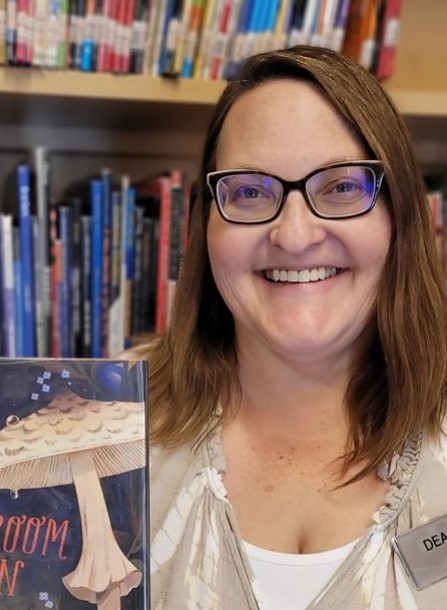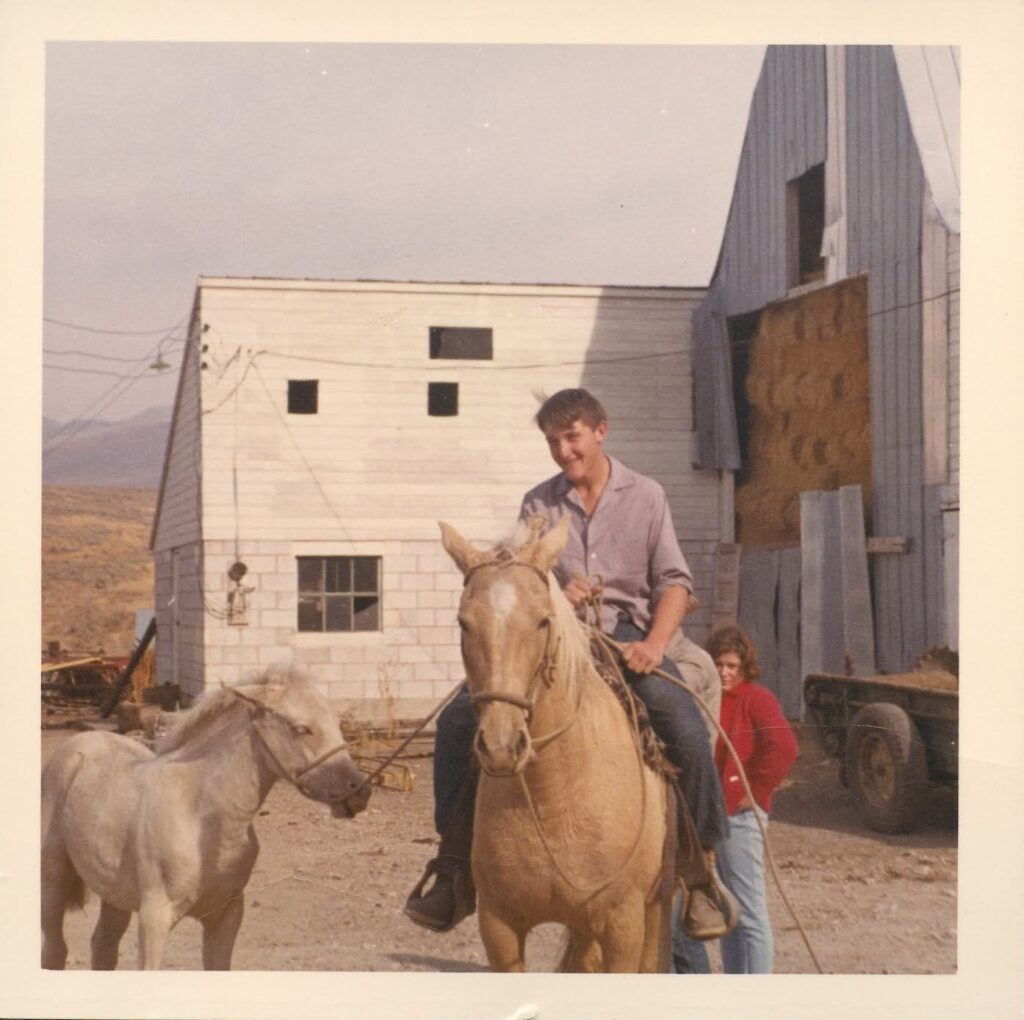The Invitation of Ink
By Martha Williams
Director of Programs and Education

Above my head flutter loops of translucent paper, inked Chinese characters dancing down the lecture hall’s beams. These Memorial Banners tell of the more than 10,000 Chinese workers who contributed to building the western section of the Transcontinental Railroad between 1863 and 1869.
Paid less than their white counterparts, segregated and discriminated against, these laborers enduring blustering winters in the Sierra Nevada – as well as rockslides and explosions and other violences – far from the homes they sent money to and longed for.
Artist Yidan Guo created the two 65-foot banners in honor of these workers, whose names are mostly lost to us now.
Their voices disappeared as letters home were destroyed, and their faces were omitted from the final flash of a photograph at Promontory Summit when the Golden Spike was driven in.
Their story, drawing from historical texts, begins at one end of the light brown paper, commonly used in traditional Chinese art. Their tale continues onto red, a shade used during the Chinese New Year when scrolls of poetry adorn doorways welcoming guests and inviting prosperity and peace.
The artist was creating the work in early 2024 in her Pocatello studio around the time of the holiday. “Out of nostalgia, I chose this red paper to pray for my homeland,” she says.
“Additionally, I attributed the meanings of ‘passion’ and ‘blood’ to this color, to commemorate those Chinese workers who sacrificed their lives in the construction of the Transcontinental Railroad.”
Standing under these banners I notice how the Chinese characters bleed through the thin paper and can be seen from all angles, the story layering over on itself and becoming part of the room. It’s a narrative I cannot read, one that eludes me. But it’s a story and a labor I can appreciate: Guo’s desire to commemorate the men who left their war-torn homelands seeking ways to support their families.
Gazing at these characters, unintelligible to me as a whole but mesmerizing as I spend a few moments looking at each one – the ink evoking a visual story of fire (火) and mountains (山) and men (男) – I see a story within each brushstroke. I’m reminded of the young woman Daiyu, the central character of Jenny Tinghui Zhang’s novel Four Treasures of the Sky (our 2025 Winter Read) who learns calligraphy before being kidnapped from her home in China and arriving in San Francisco and then a mining town in 1880s Idaho.
Navigating new and bewildering people and places, Daiyu conjures up images of Chinese characters to help her make sense of this new world. Calligraphy is for her a tether to home, a view into the life she could have led. And, as she learns from Master Wang, calligraphy is not only a practice, but a philosophy: “something to be carried for the rest of the calligrapher’s life, the ink replacing blood, the brush replacing arms.”
This is the kind of person you can become, he tells his students, “The kind who approaches the world as a blank sheet of paper every time.”
What more are the stories we read, the thousands of books on the shelves here at The Community Library, than blank sheets of paper full of the life and blood others have poured onto them? Stories of survival and failure and joy and hardship. Stories of leaving behind one home and finding another, of leaving behind one version of the self and evolving into something unexpected.
Reading is our opportunity to hear about the lives of others, to interpret their experiences and compare them with our own. To be entertained, to learn, to engage with the wide world beyond our door. To open our minds to the many voices and histories these inks convey…
…to be blank pages receiving and creating our own new stories every day.
I hope you’ll join us on Monday, February 24 for “Mastering the Brush,” a conversation with Yidan Guo, who will tell us about the process of creating these banners and about the role of calligraphy in her art. A few days later, on Thursday, February 27, we’ll close out the Winter Read with a talk from author Jenny Tinghui Zhang.
Come join us, as we talk together about these loops and bound stacks of paper, and about how magical and inviting a simple piece of paper and a bottle of ink can be.


